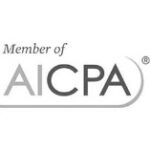Running a small business comes with many expenses, but the good news is that many can be deducted from the firm’s taxable income, helping to reduce its overall burden. Understanding small business deductions is particularly important for healthcare providers like independent practices, hospices, and clinics, as they often deal with high operational costs and varying cash flows due to fluctuating patient payments and insurance reimbursements. Knowing which deductions apply to your business can save you thousands of dollars each year.
In this guide, we’ll explore key tax deductions that small businesses can claim, using scenarios of healthcare businesses to illustrate how these savings can apply. Whether you run a private physical therapy clinic, a mobile home-care service, or a dermatology practice, taking advantage of these deductions can make a significant impact on the bottom line.
The Basics: Understanding Tax Deductions
Starting with the basics, a tax deduction is an expense that can be subtracted from your taxable income, effectively reducing the amount of income tax you owe. To qualify as a tax deduction, an expense must be both ordinary and necessary for the business. This means the expense should be common and accepted in your industry and essential for operations. Leveraging these deductions will help businesses keep more of their dollars.
Essential Tax Deductions for Healthcare Businesses
Wheels and Meals
Many healthcare providers rely on their vehicles for conducting business, particularly those offering home visits. For example, an in-home physical therapy business for seniors can easily rack up 5,000 miles for patient visits (per therapist) throughout the fiscal year. Using the standard mileage rate of 70 cents per mile in 2025, which is an increase of 3 cents from 2024, a business can deduct $3,500 (again, per therapist) from its taxable income. If they had chosen the actual cost use of a vehicle method instead, they could have deducted a portion of their gas, maintenance, insurance, and depreciation costs from the business’s overall income.
To qualify, the vehicle must be used for business purposes at least 50% of the time. By keeping detailed records of business mileage and expenses, you can maximize this valuable tax deduction.
Similarly, business meals can be deductible, depending on the context. For instance, let’s say you are the owner of a pediatric clinic that frequently needs to collaborate with referring physicians to coordinate patient care. When a clinic’s office manager takes a doctor out for lunch to discuss a new working relationship, half of the meal cost can be deductible. However, for an annual staff holiday party, which is considered an expense for social or recreational purposes, or for a corporate annual picnic, the entire amount spent on catering is fully deductible under IRS rules. (Interestingly, during the Covid crisis, an act passed called the Taxpayer Certainty and Disaster Tax Relief Act of 2020 allowed for the 100% deduction for certain business meal expenses. That generous allowance has since expired.)
Employee-Related Expenses
For businesses with employees (typically outside of small, individual health practices), salaries, wages, and benefits are fully deductible. Payroll taxes, which are directly related to business activities, can also be deducted as an expense. These are the taxes that are imposed on employers and employees and are typically calculated as a percentage of salaries that the employer pays to the employee. For example, if a chiropractic and wellness center employs five full-time staff members, paying out an annual total of $400K in salaries, plus contributing $30K in health insurance and retirement plans for employees, the entire $430K amount is deductible as they are necessary to run the business.
That said, not every worker is an employee. For many healthcare providers, hiring independent contractors is often quite common. For instance, we at Walters Accounting often partner with home health aide businesses that often bring on freelance or independently registered nurses for their part-time home visit services. So, when they pay such contractors over the course of the year, that amount is fully deductible, with the business issuing a Form 1099-NEC at tax time.
Health Savings Account Contributions
As mentioned just above, wages are an important consideration, but so are the benefits offered to employees by healthcare providers. Take pre-tax contributions made to a Health Savings Account, or an HSA. These savings vehicles are tax-deferred accounts that allow the dual benefit of reducing the business’s taxable income, while also helping employees save for their future medical expenses such as costs related to doctor visits or prescription drugs. It’s a real win-win.
Depreciation and Amortization
For larger businesses, business property (such as expensive medical equipment) often qualifies for a tax break, whether it is spread over time through depreciation or deducted all at once under what’s called Section 179, a part of the IRS tax code that allows for immediate depreciation of certain properties. A major way to reduce the Uncle Sam’s bite, this deduction applies to “tangible property,” such as machinery and other equipment that is bought to use in a business or trade. Knowing what qualifies is important, as what you wouldn’t think would be deductible may be, such as HVAC systems, roof improvements, security and fire systems (to nonresidential properties) just to name a few. The IRS offers Publication 486 which can give more color to this topic.
Education and Training
Healthcare advances, so keeping up with the latest medical innovations and overall industry trends is obviously crucial for healthcare professionals. Not only will they gain competitive advantage, but they may also even limit their risk for lawsuits when they are offering the safest, most up-to-date, and approved procedures. So, another way to trim the tax bill is to include education costs. For instance, an optometry practice we know recently sent its team to a national ophthalmology conference. This business spent nearly $3,500 on registration, travel tickets, and accommodation (per employee). Knowing how to deduct such expenses certainly eased their tax pain. While at the conference, courting other professionals for partnerships, such as vendors, was another reason to attend. These vendor “entertainment” costs may also be valid deductions.
Legal and Professional Fees
We at Walters Accounting know that it’s often the right move for businesses to seek out qualified tax expertise. By hiring experienced accountants, attorneys, and/or other professionals, healthcare companies will not only get the help they need with complex and often changeable tax regulations, the professional service fees they shell out can also qualify as deductible. Tax prep costs paid to tax return professionals may be deductible, and expenses that might not always be obvious such as hiring firms to assist with compliance issues may also be valid. There are many services that can fall under the IRS’s allowable deductible expenses such as legal fees related to business formation, contract drafting, and dispute resolution. The specifics, again, can be variable and should be researched well. Check out this link to read more about these credits and deductions for businesses.
Home Office Deduction
For some it might be a surprise to consider “home office deductions” for healthcare businesses. But think about it, many workers in this field do indeed work from home and are granted the option to claim some related deductions. Licensed psychologists, for example, will often convert a certain amount of home space into office space. If they were to use a 200-square-foot room in their home as a dedicated office space, under the “simplified method”, they could deduct $1,000 ($5 per square foot) from their taxable income. This deduction, by the way, is allowable up to 300 square feet. I say simplified method, as there is also something considered the “regular method”. If you want to learn more about this distinction you can check out more on the IRS website. We also always suggest consulting with qualified accountants to ensure accuracy.
Final Thoughts on Tax Deductions for Small Businesses
Tax deductions can certainly make a big difference for small businesses, and healthcare businesses are no exception as their operational costs are often steep. By knowing which expenses qualify (and which ones have changed year-over-year in the tax code), healthcare providers can make some serious dents in their taxable income. It’s certainly an advantage when they want or need to reinvest in their business. And, as always, by maintaining accurate records throughout the year businesses can take better advantage of these deductions and will limit the chance these will be contested by tax authorities. By consulting professionals, such as those at Walters Accounting, the process can be streamlined, with results more effective and savings passed along to the business.












